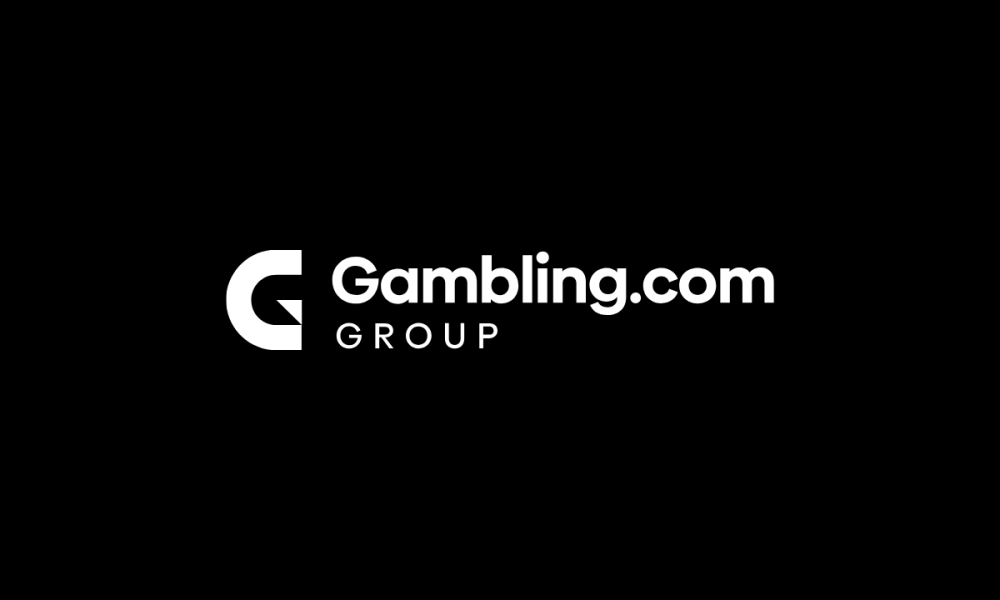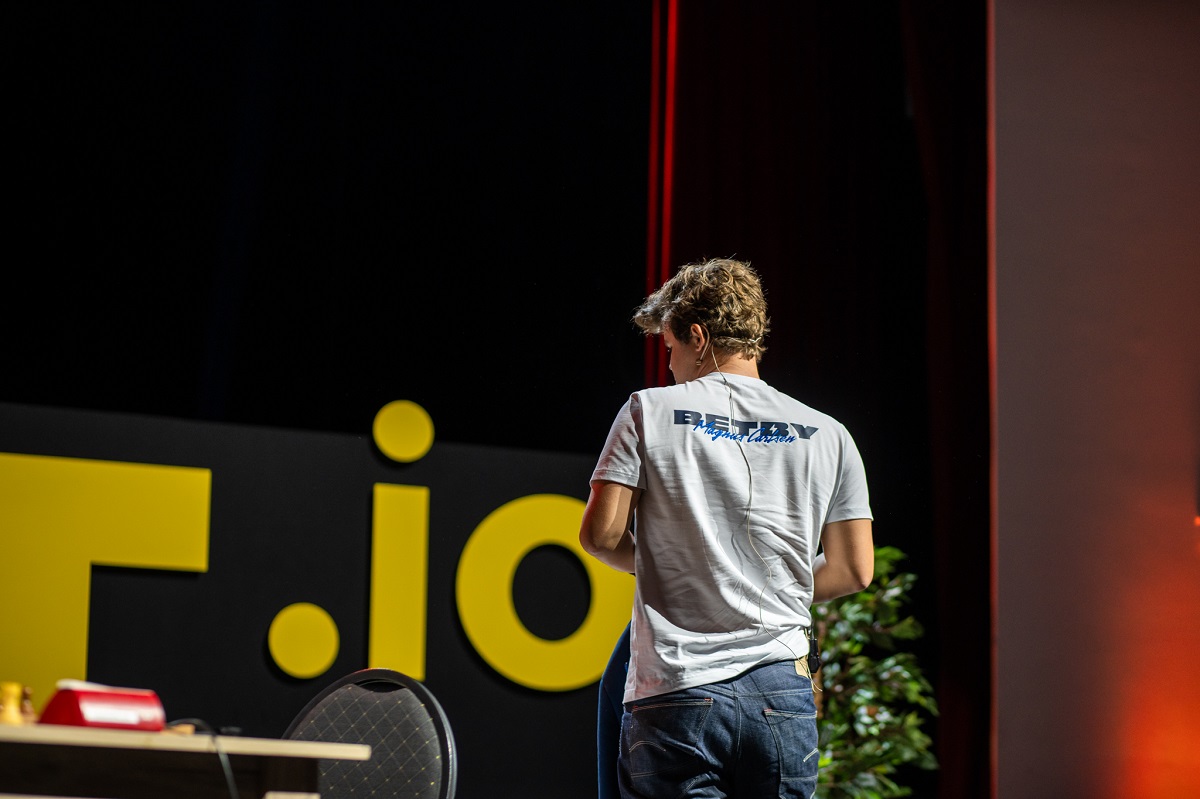

Latest News
Online Gambling Regulations in Europe
The European online gambling market is one of the most lucrative and dynamic in the world, attracting millions of players and hundreds of licensed operators. However, unlike other industries that follow uniform regulations across the European Union (EU), gambling laws differ significantly from one country to another. Each nation has the autonomy to establish its own rules, licensing procedures, and player protection measures, making the regulatory landscape both diverse and complex.
Alt text: Man playing with poker chips and cards.
For players and operators alike, understanding these legal frameworks is essential to ensuring compliance and a safe gaming experience. Whether you’re a casual player looking for licensed platforms or an investor exploring the market, knowing the ins and outs of European gambling laws is key. That’s why many prefer to play at EU casinos that adhere to strict national and international regulations, ensuring fair play and security.
The European Union’s Stance on Online Gambling
The European Union (EU) does not impose a standardized regulatory system for online gambling across its member states. Instead, each country retains the autonomy to craft and enforce its own laws governing gambling activities. This approach acknowledges the principle of subsidiarity, allowing nations to regulate gambling in a manner that aligns with their societal values and public policy objectives. Consequently, the legal status and regulatory requirements for online gambling vary significantly across the EU.
Country-Specific Regulatory Frameworks
United Kingdom
The United Kingdom maintains a comprehensive regulatory framework for online gambling, primarily governed by the Gambling Act 2005 and overseen by the UK Gambling Commission (UKGC). In April 2023, the government published a white paper titled “High Stakes: Gambling Reform for the Digital Age,” outlining significant reforms to modernize gambling regulations. One key proposal is the introduction of a statutory levy on all licensed gambling operators, set to commence in April 2025. This levy aims to fund research, prevention, and treatment of gambling-related harms, with rates varying depending on the sector and nature of the gambling activity.
Germany
Germany’s online gambling landscape has undergone significant changes with the enactment of the Interstate Treaty on Gambling (ISTG) 2021. This treaty permits the federal licensing of sports betting, virtual slot machines, and online poker. Notably, online slot stakes are capped at €1 per spin to promote responsible gambling. The regulation of traditional online casino games, such as roulette and blackjack, is delegated to individual states, resulting in varied rules and licensing requirements across the country. The Joint Gambling Authority (GGL) serves as the central regulatory body, ensuring compliance and overseeing licensed operators.
France
In France, the online gambling market is regulated by the National Gaming Authority (Autorité Nationale des Jeux – ANJ), established under the French Gambling Act 2010. The legislation permits online betting on sports, horse racing, and poker, while online casino games like slots and roulette remain prohibited. Operators must secure a license from the ANJ and comply with strict regulations to protect consumers and uphold gaming integrity.
Spain
Spain’s online gambling activities are governed by the Spanish Gambling Act, with oversight provided by the Directorate General for the Regulation of Gambling (Dirección General de Ordenación del Juego – DGOJ). The act legalizes various forms of online gambling, including sports betting, poker, and casino games. Licensed operators are required to implement measures promoting responsible gambling and ensuring the protection of vulnerable individuals.
Italy
Italy has embraced a regulated online gambling market, with the Autonomous Administration of the State Monopolies (AAMS) responsible for licensing and supervision. The regulatory framework permits a broad spectrum of online gambling activities, including poker, casino games, and sports betting. Operators must adhere to the provisions of the Finance Act, which has been amended over time to accommodate the evolving gambling landscape.
Netherlands
The Netherlands introduced the Remote Gambling Act to regulate online gambling, with the Dutch Gambling Authority (Kansspelautoriteit – KSA) serving as the regulatory body. The act allows operators to obtain licenses to offer online sports betting, casino games, and poker to Dutch residents. The KSA enforces strict guidelines to ensure player protection, game fairness, and the prevention of gambling addiction.
Malta
Malta stands out as a hub for online gambling operators, largely due to its comprehensive regulatory framework and favorable business environment. The Malta Gaming Authority (MGA), established under the Gaming Act 2018, licenses and regulates a wide array of online gambling activities. The MGA has taken decisive actions, including revoking licenses of non-compliant operators to uphold the integrity of the gaming industry.
Ireland
Ireland’s approach to online gambling regulation has been evolving, with the passage of the Gambling Regulation Act in October 2024 marking a significant milestone. This legislation led to the creation of the Gambling Regulatory Authority of Ireland (GRAI), tasked with overseeing both online and land-based gambling activities. The GRAI aims to establish a robust regulatory environment that safeguards players and ensures fair play across all gambling platforms.
Common Regulatory Themes Across Europe
Despite the diversity in regulatory approaches, several common themes emerge across European countries:
- Licensing Requirements: Operators are generally required to obtain a license from the relevant national authority to offer gambling services legally. This process involves rigorous vetting to ensure the operator’s suitability and commitment to maintaining industry standards.
- Player Protection Measures: Regulations often mandate the implementation of measures to protect players from gambling-related harm. This includes self-exclusion options, deposit limits, and access to support services for problem gambling.
- Anti-Money Laundering (AML) Compliance: Operators must adhere to strict AML protocols to prevent the misuse of gambling platforms for illicit financial activities. This involves customer verification processes and the monitoring of transactions for suspicious activity.
- Advertising and Promotion Controls: Many jurisdictions impose restrictions on the advertising of gambling services to prevent targeting vulnerable populations and to promote responsible marketing practices.
The Role of the European Gaming and Betting Association (EGBA)
The European Gaming and Betting Association (EGBA) advocates for a well-regulated and competitive online gambling market in the EU. Representing top operators, it works with national and EU authorities to align regulations and encourage industry best practices. The EGBA prioritizes consumer protection, responsible gambling, and maintaining integrity in gaming operations.
The Future of Online Gambling Regulation in Europe
The European online gambling industry is constantly evolving, with regulatory changes being introduced regularly. Some trends shaping the future include:
Tighter Responsible Gambling Controls: More countries are adopting affordability checks and restrictions on VIP programs.
Cross-Border Licensing Discussions: The EU may push for more harmonization of gambling laws, though this remains a challenge.
New Technologies: AI, blockchain, and cryptocurrency gambling may introduce new regulatory challenges in the coming years.
As European gambling laws continue to shift, both players and operators need to stay informed. Playing at licensed platforms and understanding national regulations is the best way to ensure a safe and fair gaming experience.
The post Online Gambling Regulations in Europe appeared first on Gaming and Gambling Industry in the Americas.
Charles Gillespie
Gambling.com Group Reports First Quarter Results Including Record Revenue and Adjusted EBITDA

Gambling.com Group Limited (Nasdaq: GAMB) (“Gambling.com Group” or the “Company”), a fast-growing provider of marketing and sports data services for the global online gambling industry, today reported financial results for the first quarter ended March 31, 2025.
Charles Gillespie, Chief Executive Officer and Co-Founder of Gambling.com Group, commented, “We entered 2025 with our marketing business at all-time highs and with an expanded suite of sports data services having closed the acquisition of OddsJam and OpticOdds on January 1. Since the closing, we have made substantial progress on integrating these offerings into our overall business and the products are performing strongly as expected. With an enhanced sports data services platform, we now have meaningful recurring subscription revenue, which we expect to account for well over 20% of our 2025 revenue, bringing increased revenue visibility and a complimentary, high margin and high growth source of profit and cash flow.
“We are reiterating our full year 2025 guidance despite the unpredictable macro environment, as our services address critical problems for all our customers and our industry is typically insulated from the gyrations of the global economy. We continue to expect 2025 to be another year of record revenue, Adjusted EBITDA and Free Cash Flow as we leverage the skills and expertise of our talented team with a larger product offering to drive growth across all our reporting regions. Each day we are moving closer to our goal of generating $100 million in annual Adjusted EBITDA.”
Elias Mark, Chief Financial Officer of Gambling.com Group, added, “Our first quarter results include record quarterly revenue of $40.6 million and Adjusted EBITDA of $15.9 million, reflecting year-over-year growth of 39% and 56%, respectively. With the solid start to the year, we remain confident in our full year outlook with the midpoints of our guidance for revenue of $172 million and $68 million in Adjusted EBITDA, representing year on year growth of 35% and 40%, respectively.”
Financial Highlights Three Months Ended March 31, 2025 vs. Three Months Ended March 31, 2024
(USD in thousands, except per share data, unaudited)
|
|
Three Months Ended March 31, |
|
Change |
|||||
|
|
2025 |
|
2024 |
|
% |
|||
|
Revenue |
40,635 |
|
|
29,215 |
|
|
39 |
% |
|
Net income for the period attributable to shareholders |
11,236 |
|
|
7,299 |
|
|
54 |
% |
|
Net income per share attributable to shareholders, diluted |
0.31 |
|
|
0.19 |
|
|
63 |
% |
|
Net income margin |
28 |
% |
|
25 |
% |
|
|
|
|
Adjusted net income for the period attributable to shareholders (1) |
16,490 |
|
|
9,264 |
|
|
78 |
% |
|
Adjusted net income per share attributable to shareholders, diluted (1) |
0.46 |
|
|
0.24 |
|
|
92 |
% |
|
Adjusted EBITDA (1) |
15,864 |
|
|
10,159 |
|
|
56 |
% |
|
Adjusted EBITDA Margin (1) |
39 |
% |
|
35 |
% |
|
|
|
|
Cash flows generated by operating activities |
11,415 |
|
|
8,806 |
|
|
30 |
% |
|
Free Cash Flow (1) |
10,277 |
|
|
8,193 |
|
|
25 |
% |
__________
(1) Represents a non-IFRS measure. See “Supplemental Information – Non-IFRS Financial Measures” and the tables at the end of this release for reconciliations to the comparable IFRS numbers.
First Quarter 2024 and Recent Business Highlights
- Delivered more than 138,000 new depositing customers (“NDCs”)
- Completed accretive acquisition of Odds Holdings, Inc. on January 1, 2025 for initial consideration of $70 million in cash and $10 million in ordinary shares
- Expanded credit facility to $165 million with a new syndicate
Three Months Ended March 31, 2025 Results Compared to Three Months Ended March 31, 2024
Revenue rose 39% year-over-year to a record $40.6 million. Revenue from marketing services increased 13% year over year to $30.7 million as the Company delivered more than 138,000 NDCs to clients, a 29% increase over the prior-year period. Revenue from sports data services increased 405% year-over-year to $9.9 million, primarily due to the contribution of OddsJam and OpticOdds following the acquisition on January 1. Recurring subscription revenue represented 24% of total 2025 first quarter revenue.
Gross profit increased 42% to $38.4 million, due to strong revenue growth while cost of sales was in line with the prior-year period reflecting lower cost of sales for media partnerships offset by the addition of cost of sales related to OddsJam and OpticOdds.
Total operating expenses increased 49% to $28.4 million, primarily as a result of increased people costs and higher amortization related to the acquisition of Freebets.com and related assets on April 1, 2024 and the acquisition of Odds Holdings on January 1, 2025.
Net income attributable to shareholders increased $3.9 million to $11.2 million and net income per share was $0.31 compared to $0.19 in the prior-year period. Adjusted net income rose 78% to $16.5 million and Adjusted net income per share increased 92% to $0.46.
Adjusted EBITDA increased 56% to a record $15.9 million, reflecting an Adjusted EBITDA margin of 39% as compared to Adjusted EBITDA of $10.2 million and an Adjusted EBITDA margin of 35% in the prior-year period.
Operating cash flow grew 30% to $11.4 million. Free cash flow increased 25% to $10.3 million, reflecting growth in Adjusted EBITDA partly offset by working capital movements.
2025 Outlook
Gambling.com Group today reiterated the 2025 full-year revenue and Adjusted EBITDA guidance originally provided on February 19, 2025. The Company expects full year revenue of $170 million to $174 million and Adjusted EBITDA of $67 million to $69 million. The midpoints of the new full year revenue and Adjusted EBITDA guidance ranges represent year-over-year growth of 35% and 40%, respectively, and an Adjusted EBITDA margin of 39.5%.
The Company’s guidance assumes:
- Incremental Adjusted EBITDA contributions of approximately $14.5 million related to the acquisition of Odds Holdings, Inc. that was completed on January 1, 2025.
- No additional North American markets coming online over the balance of 2025. While online sports betting is expected to begin in Missouri in the second half of 2025, the Company’s guidance policy excludes any benefits from new state launches until such time as a definitive start date is announced by the appropriate regulatory body.
- An average EUR/USD exchange rate of 1.10 throughout 2025.
Conference Call Details
|
Date/Time: |
Thursday, May 15, 2025, at 8:00 a.m. ET |
||
|
Webcast: |
https://www.webcast-eqs.com/register/Gamb051525/en |
||
|
U.S. Toll-Free Dial In: |
877-407-0890 |
||
|
International Dial In: |
1 201-389-0918 |
The post Gambling.com Group Reports First Quarter Results Including Record Revenue and Adjusted EBITDA appeared first on Gaming and Gambling Industry in the Americas.
Latest News
BETBY TAKES CENTER STAGE AT NEXT SUMMIT VALLETTA WITH A STANDOUT APPEARANCE BY MAGNUS CARLSEN

From the 7th to the 8th of May, the Mediterranean Conference Center in Valletta, Malta, transformed into the global hub of iGaming innovation at NEXT Summit Valletta, and BETBY made a memorable mark with a powerful blend of star power, strategic thought leadership, and engaging tournament action.
The highlight of BETBY’s presence was the appearance of Magnus Carlsen, five-time World Chess Champion and BETBY’s global brand ambassador, who captivated the audience as the headline speaker of the summit. In an exclusive fireside chat titled “iGaming Chess World Championships – Hosted by Magnus Carlsen & BETBY,” Carlsen joined NEXT.io co-founder and managing-director Pierre Lindh on stage to explore the synergies between chess, poker, and iGaming. The chess GOAT shared personal reflections on his journey from prodigy to world champion, discussed how strategic thinking shaped his mindset, and drew parallels between classic board games and modern betting dynamics, offering a unique perspective that resonated deeply with both chess lovers and iGaming professionals.
Magnus Carlsen’s keynote was followed by a thrilling showpiece: a blindfold chess match against the winner of the inaugural iGaming World Chess Championship, a tournament hosted by BETBY in partnership with the Malta Chess Federation. Open to all delegates, the tournament offered a rare opportunity to go head-to-head in a high-stakes strategic challenge, with the once-in-a-lifetime prize being a live match against Carlsen himself. The tournament underscored BETBY’s commitment to creativity, innovation, and connecting gaming communities in new and exciting ways.
Continuing its thought leadership momentum, BETBY’s Chief Commercial Officer, Chris Nikolopoulos, took the stage on the second day of the event, contributing to a high-level panel discussion titled “LATAM – A flash in the pan or a long-term powerhouse?” Sharing the stage with fellow industry leaders, Nikolopoulos provided insights on the evolving dynamics of Latin America’s iGaming market. Topics included Brazil’s standout role, the growth potential in Colombia and Peru, and strategies for balancing short-term success with long-term sustainability. His participation cemented BETBY’s position as a key voice in the global conversation about emerging market opportunities and investment strategies.
NEXT Summit Valletta 2025 was a celebration of innovation, connection, and cross-industry creativity, with BETBY standing at the heart of it all. From inspiring keynotes and a groundbreaking tournament to meaningful conversations and strategic insights with both existing and potential partners, the event reinforced BETBY’s position as a bold, forward-thinking leader in the iGaming industry.
The post BETBY TAKES CENTER STAGE AT NEXT SUMMIT VALLETTA WITH A STANDOUT APPEARANCE BY MAGNUS CARLSEN appeared first on European Gaming Industry News.
Brazil
Brazilian Ministry of Sports and IBIA sign sports betting integrity agreement

The Brazilian Ministry of Sports and the International Betting Integrity Association (IBIA) have signed a sports betting integrity cooperation agreement. This partnership will enable the sharing of information concerning suspicious betting activity connected to Brazilian sports and support collaboration on integrity-related investigations.
The agreement brings together the governmental body tasked with safeguarding the integrity and development of Brazilian sport, and the largest international betting integrity monitor for private operators in the world. Leading industry data and intelligence company H2 Gambling Capital has forecast that IBIA covers more than 70% of Brazil’s licensed remote gambling market.
According to ‘The Availability of Sports Betting Products: An Economic and Integrity Analysis’ study published last year, the sports betting regulatory regime in Brazil is projected to create $34bn (R$191.7bn) in sports betting turnover by 2028. With this increased growth comes a greater responsibility to protect customers, sports and betting operators from match-fixing.
A key element of the new Brazilian regulatory framework is the requirement that operators seeking a licence must join an independent sports integrity monitoring body. This licensing requirement is helping to strengthen IBIA’s capacity to monitor, assess and protect betting transactions in Brazil’s regulated sports betting market and maintain the integrity of Brazilian sporting events.
Minister of Sport, André Fufuca, said: “Today we are signing a milestone in the fight against match-fixing in Brazilian sport. Integrity must be a constant principle when it comes to transparency, ethics and, above all, the correctness of sports results. With these agreements, we will have more than enough instruments to curb this practice and guarantee greater transparency in competitions. Thus, athletes, clubs, organizations, fans and the entire population will be able to fully trust in the fairness of the results and, with this, will have peace of mind to develop the full potential of Brazilian sport.”
Khalid Ali, IBIA CEO, said: “IBIA welcomes this important partnership with the Brazilian Ministry of Sports. As the market grows, so too does the responsibility to ensure that robust integrity safeguards are in place. This agreement will ensure that information on suspicious betting is swiftly shared with the Ministry to support effective integrity actions. This includes access to detailed, account-level data available only through IBIA’s unique network.”
IBIA is a globally recognised non-profit organization that seeks to safeguard the integrity of the sports and betting sectors by fighting betting related match-fixing and fraud. It provides a free integrity monitoring service to sports governing bodies, regulatory authorities, government ministries, and law enforcement agencies that, importantly, has no potential conflicts created by the provision of competing commercial services, enabling all parties to efficiently and effectively cooperate in investigating, prosecuting and deterring sports betting related match-fixing.
IBIA monitors over $300bn per annum in betting turnover across more than 140 sports betting brands globally, making IBIA the largest betting integrity monitor of its type for private operators in the world. The association’s unrivalled access to detailed global customer transactional data has, and will continue, to play a pivotal role in protecting the Brazilian sports betting market and sporting events from corrupt activity. IBIA recently released its global alert data for the first quarter of 2025, detailing that 63 cases of suspicious betting were reported to the relevant authorities.
The post Brazilian Ministry of Sports and IBIA sign sports betting integrity agreement appeared first on Gaming and Gambling Industry in the Americas.
-

 gaming3 years ago
gaming3 years agoODIN by 4Players: Immersive, state-of-the-art in-game audio launches into the next generation of gaming
-
EEG iGaming Directory8 years ago
iSoftBet continues to grow with new release Forest Mania
-
News7 years ago
Softbroke collaborates with Asia Live Tech for the expansion of the service line in the igaming market
-
News6 years ago
Super Bowl LIII: NFL Fans Can Bet on the #1 Sportsbook Review Site Betting-Super-Bowl.com, Providing Free Unbiased and Trusted News, Picks and Predictions
-
iGaming Industry7 years ago
Rick Meitzler appointed to the Indian Gaming Magazine Advisory Board for 2018
-
News6 years ago
REVEALED: Top eSports players set to earn $3.2 million in 2019
-
iGaming Industry7 years ago
French Senator raises Loot Boxes to France’s Gambling Regulator
-
News7 years ago
Exclusive Interview with Miklos Handa (Founder of the email marketing solutions, “MailMike.net”), speaker at Vienna International Gaming Expo 2018




















